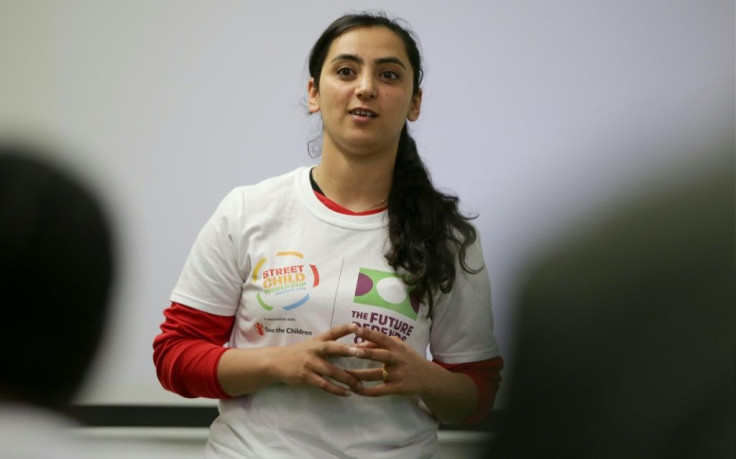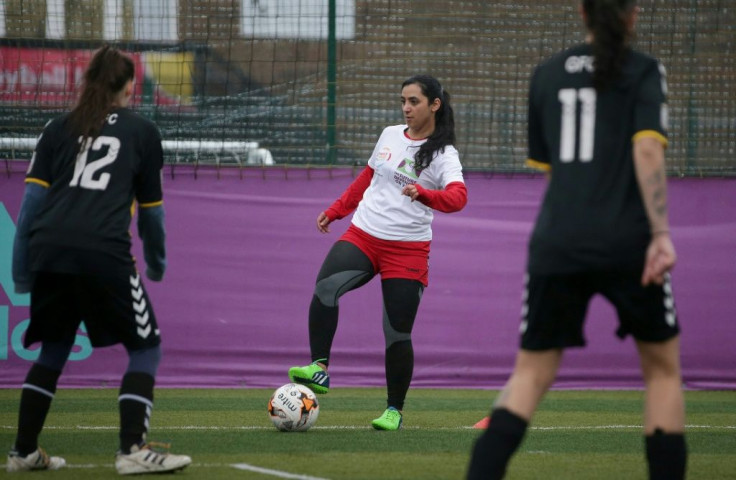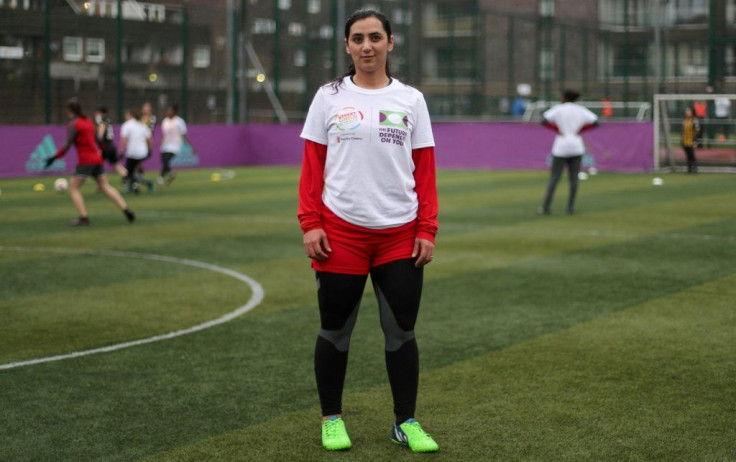Khalida Popal, Saving Afghanistan's Women Footballers One Player At A Time
Khalida Popal hasn't slept for days. From Denmark where she lives, the former captain of Afghanistan's women's football team has worked tirelessly since the fall of Kabul to evacuate the team's players, who are under threat from the Taliban.
And she isn't giving up -- she's more determined than ever to continue her fight for the emancipation of girls and women in her native country, where the Taliban do not allow women to play sports.
"We have managed to get 75 people out of Afghanistan, which includes players and their families" who have flown to Australia, Popal tells AFP, sitting in the stands of FC Nordsjaelland, the Danish first division team for which she works as commercial coordinator.
"We are trying to get more players out of Afghanistan. We'll do everything possible to get our players out."
Popal, 34, came to Denmark from Afghanistan 10 years ago as a refugee.
She has not slept since Afghanistan fell into the hands of the Taliban, her hands clasped tightly around her phone as she helps organise the evacuation of the players, together with professional players' union FIFPro among others.

On her voicemail, she listens to desperate pleas for help.
As manager of Afghanistan's now-splintered national squad, she is the point-person for the players, who are in a state of shock.
Some of them have been threatened by hardline Islamists, others beaten by the Taliban.
"I had to take the lead, together with my team, to help them to get out of Afghanistan. The players were crying, seeking protection, hopeless," she says.
She helped them "to regroup, to keep up hope and not give up. That was the toughest," she said, describing herself as a "survivor".

For their safety, she won't disclose any details about the players still in Afghanistan that they're trying to get out.
She looks exhausted, but her determination is visible.
For her, football is her passion. But more importantly, she sees it as a tool for the emancipation of Afghan women.
Everything she learned on the pitch -- team spirit, determination, perseverence -- has come in useful these past few days.
She recalls her own childhood in Afghanistan, one she says was stolen by the Taliban.
"I was not able to go to school, I was not able to participate in any social activities," she explains.

"We wanted to kind of take revenge and say 'football is the way that we want to take revenge from the Taliban and the Taliban is our enemy'."
"That was our strong statement."
Since the first women's teams started emerging about 15 years ago, football has grown rapidly in Afghanistan. But it all disappeared overnight when Kabul fell to the Taliban.
"We had around 3,000 to 4,000 women and girls who were registered in the football federation at different levels: grassroots, elite level, and semi-elite level. We had referees, coaches, female coaches," Popal says.
"After the fall of Kabul, that was all gone. That's sad," she says, her voice cracking.
The players' future is unknown at this point.
They "might play football, but they will not play as players of Afghanistan, because they will not have a country nor a national team."
The Taliban "have changed the flag of Afghanistan, the flag we felt proud to see and play for."
"Our pride has been taken from us," she said.
With US troops set to leave on August 31, Popal, whose parents also live in Denmark, fears her native country will be abandoned and forgotten.
"Once again, people will live in a dark time. And whatever humanitarian crisis and crime happens in Afghanistan, nobody will be able to report about it."
Especially, she says, since the Taliban have become better at speaking to the international media.
But she will continue to use her own voice.
"As human beings, stand together with me and fight, and be the voice for every woman of Afghanistan," she pleaded.
"For every woman who is left in the country, every woman who feels betrayed and abandoned."
© Copyright AFP 2024. All rights reserved.







